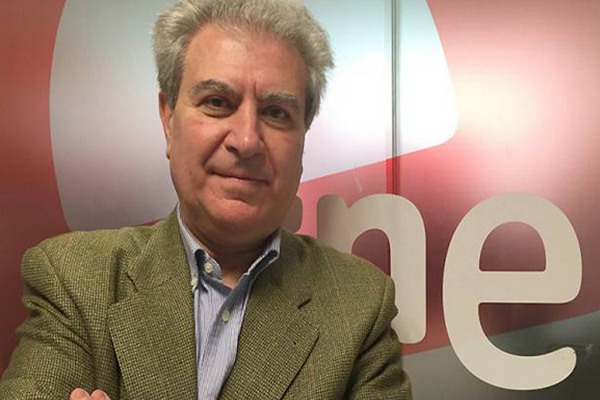The digital newspaper El Debate publishes today an interview with Cesar Antonio Molina, Minister of Culture in the PSOE government of José Luis Rodriguez Zapatero.
Q -It has come to our attention that several former PSOE ministers and deputies, both from the time of Felipe González and from the time of José Luís Rodríguez Zapatero, have signed a manifesto against the President of the Government, Pedro Sánchez, who is also the Secretary General of the Socialist Party. What are the reasons for this critical attitude?
A -Pedro Sánchez is not the Pope to bless who are socialists and who are not. Even if one had to say who is and who is not, I would say that Pedro Sánchez is the first who is not a socialist.
Q-Will there be more pronouncements from socialist politicians along these lines?
A-It is not unusual for the manifesto published this week to include former ministers and other very important socialist posts: secretaries of state, directors general, members of parliament, etc. I am sure that many more officials from the governments of Felipe and Zapatero would sign up immediately if we could locate them, because we are doing all this in an amateurish way, without any infrastructure whatsoever. I am also sure that many more people will sign up because the signs of support have been pouring in over the last few days. For the moment, we have already set up a link so that all citizens who wish to join the manifesto can do so.
Q-If he is not a socialist, then what is President Pedro Sánchez?
A-He has become a kind of autocrat on the road to tyranny. Pedro Sánchez is breaking all the rules of democracy and the separation of powers, messing with the media, passing laws by decree law and in an obscurantist manner. We also have his way of being, his way of speaking, his manners, etcetera.
Q-A tyrant in 21st century Spain?
A-Many people think that these types of characters and attitudes are from another era. And no, these things exist; they are here, they are present and, what’s more, they follow the path we already know from many Spanish-American republics. We already know the paths their governments have taken. This is the same here.
Q-The manifesto he signed strongly criticises the reform of the crimes of embezzlement and sedition.
A-These crimes are fundamental elements of the rule of law, because if you know that you can commit a crime knowing that you will not be punished, well, you can commit a crime even for fun.
And the reform of embezzlement is the last straw, because embezzlement directly affects politicians. Neither you nor I can embezzle, because we do not hold political office. Politicians can embezzle. So now you can embezzle well or badly? To embezzle well is not to keep the money, but to divert it to whatever you want, that is to embezzle badly. We are reaching the level of insult to intelligence.
Q-Listening to him, one gets the impression that we are living in disturbing times.
A-These are dangerous times, very dangerous times. They take us back to the 1930s. It seems implausible and that this could not be carried out, but yes, we are in this; they are touching central elements of the rule of law. Moreover, it is like an advancing disease. Many people thought that some of us who called attention to it with our articles and books were exaggerating, but I think that we have fallen short in the face of everything that has now happened.
Q-Is Spain in danger?
A-The existence of our country is in danger because pensions, employment, the economy, etc. are in danger. Faced with the weakness of our country comes the boasting of neighbouring countries about territories that are ours and that they now say are theirs, plus all kinds of threats.
All this is a real, constant and growing danger. And it all stems from the weak situation of a government controlled by a minority of pro-independence supporters. We are in the hands of the Catalan pro-independence supporters; criminals who were tried and convicted, and who have been acquitted by Pedro Sánchez.





